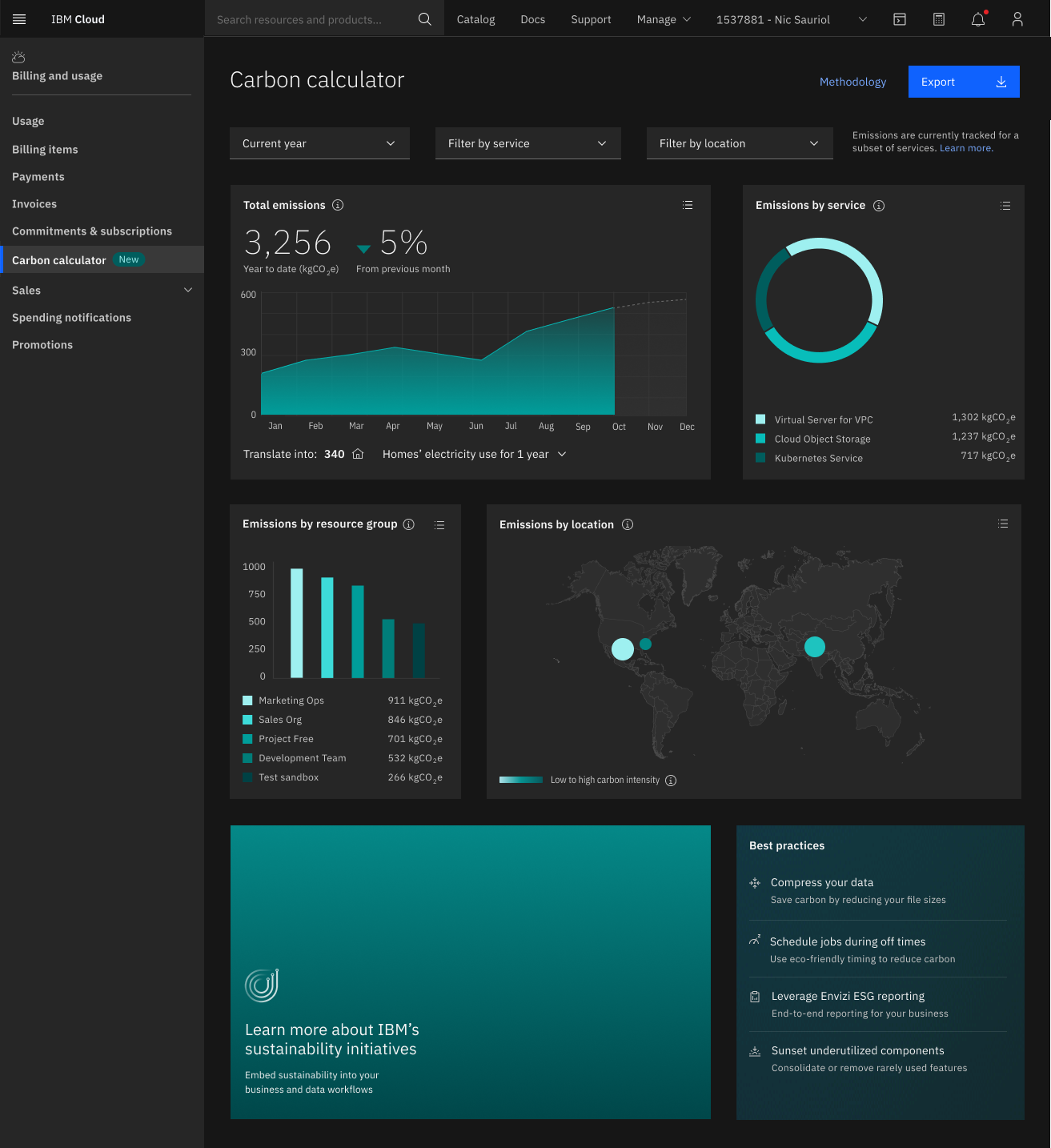ARMONK, N.Y., Aug. 17, 2023 /PRNewswire/ — Today, IBM is expanding its collaboration with Microsoft to help joint clients accelerate the deployment of generative AI – and deliver a new offering that will provide clients with the expertise and technology they need to innovate their business processes and scale generative AI effectively.
With today’s news, IBM Consulting, in collaboration with Microsoft, will focus on helping clients to implement and scale Azure OpenAI Service. The new IBM Consulting Azure OpenAI Service offering, which is available on Azure Marketplace, is a fully managed AI service that allows developers and data scientists to apply powerful large language models, including their GPT and Codex series. It aims to help businesses define an adoption strategy and an initial set of specific and value-add generative AI use cases.
In addition to the new offering, IBM and Microsoft have been collaborating around AI, leveraging IBM Consulting skills and Azure OpenAI Service to create potential solutions and address specific use cases, including:
- Procurement and source to pay: Together the companies are offering a solution that combines Microsoft Power Platform and Azure OpenAI Service to help businesses automate the highly manual and fragmented sourcing and procurement process as well as drive new insights about their supply chain. The solution is designed to improve operational efficiency, save time, and generate new actionable insights for users.
- Summarization and content generation: Financial institutions and banks are exploring how generative AI can accelerate the development of personalized content for their customers through summarization. For example, IBM Consulting and Microsoft worked on a use case in a hackathon with Julius Baer Group to efficiently process and summarize financial reports while automatically creating an audio version of the report.
- Streamline healthcare processes: IBM Consulting is leveraging Azure OpenAI Service to offer a solution that is designed to automatically ingest and analyze complex medical records and policy documents to help automate the prior authorization process. In addition, it is built to provide nurses and doctors with a virtual assistant to help collect information from patient records. The solution aims to help decrease the time needed to process prior authorization requests, reducing administrative burdens and improving the clinician experience.
- Enterprise search and knowledge base: For many organizations the information employees need to do their jobs is dispersed and siloed. Working together, IBM Consulting and Microsoft helped Wintershall Dea implement a knowledge extraction tool designed for information retrieval within vast knowledge bases. By integrating OCR and Microsoft Azure OpenAI, a user-friendly tool is created that eliminates the need for manual browsing, allowing users to effortlessly search for valuable insights.
“Businesses are looking for responsible ways to adopt and integrate multi-model generative AI solutions that augment the work their teams are doing in areas such as creative content and code creation, content summarization and search,” said Francesco Brenna, Global VP & Senior Partner, Microsoft Practice at IBM Consulting. “Our work with Microsoft is another example of IBM’s open ecosystem model designed to bring value to clients while helping them responsibly build and scale generative AI across their businesses.”
As part of the new solution, enterprise customers will also have access to IBM Consulting experts, including 21,000 data, AI and experience consultants, who can help them effectively implement generative AI models to advance their business transformation.
An open ecosystem approach to AI
IBM Consulting takes an open and collaborative approach to plan, build, implement and operate generative AI solutions that embrace multiple models on multiple clouds from industry leaders. An open ecosystem approach helps clients define the right models and the right architecture to deliver the desired outcomes. As part of this open approach, IBM Consulting works with clients across industries to assess their generative AI readiness, define the right strategies for their business and help them implement and responsibly govern generative AI in production.
Getting to enterprise AI at scale requires a human-centric, principled approach, and IBM Consulting helps clients establish guardrails that align with the organization’s values and standards, mitigates bias and manages data security, lineage and provenance.
Proven work, expertise and partnership momentum
To help clients prepare data to fuel their generative AI models, select IBM AI technology is currently available on the Azure Marketplace and can be deployed on Azure. Together we’re enabling clients to accelerate the impact of generative AI using their trusted data.
This work builds on recent momentum with IBM and Microsoft to help clients transform their businesses. IBM Consulting, which has a dedicated global practice focused on Azure Data and AI, has focused on training its consultants, who now have over 40,000 Azure certifications. Additionally, IBM Consulting brings expertise and capabilities to help Microsoft clients through its acquisition of Neudesic, which specializes primarily in Microsoft Azure.
IBM Consulting and Neudesic together were also recognized with Microsoft’s 2023 Partner of the Year Award in 13 categories. IBM Consulting is this year’s U.S. Partner of the Year Winner for GSI Growth Champion, which distinguishes IBM as the partner that’s demonstrated the most significant growth – a partner that best offers solutions aligned with Microsoft’s in driving digital innovation and cloud transformation for our joint customers in the U.S.
“Together, Microsoft and IBM are collaborating to deliver innovative solutions, that will help customers responsibly accelerate deployment of generative AI,” said Dinis Couto, GM Global Partner Solutions, Microsoft. “As a leader in the delivery of generative AI and data solutions, we believe that partners like IBM are critical to enabling customers successful use of generative AI to advance business transformation.”
IBM Consulting’s AI Capabilities
IBM Consulting recently announced its Center of Excellence for generative AI, which includes more than 1,000 consultants with specialized generative AI expertise ready to help accelerate its clients’ business transformations with enterprise-grade AI, including technology from Microsoft, IBM and other ecosystem partners.
The Center of Excellence stands alongside IBM Consulting’s existing global AI and Automation practice and leverages proven methods like the IBM Garage for Generative AI, where IBM consultants apply a comprehensive, collaborative method to help clients fast-track innovation in the emerging category of foundation models for generative AI. That includes rapid use case ideation and prioritization, an open, multi-model approach to selecting architectures and training, as well as fine tuning and scaling models to unique business needs.
IBM Consulting accelerates business transformation for our clients through hybrid cloud and AI technologies, leveraging our open ecosystem of partners. With deep industry expertise spanning strategy, experience design, technology, and operations, we have become the trusted partner to many of the world’s most innovative and valuable companies, helping modernize and secure their most complex systems. Our 160,000 consultants embrace an open way of working and apply our proven co-creation method, IBM Garage, to scale ideas into outcomes.
Statements regarding IBM’s future direction and intent are subject to change or withdrawal without notice and represent goals and objectives only.
About IBM
IBM is a leading provider of global hybrid cloud and AI, and consulting expertise. We help clients in more than 175 countries capitalize on insights from their data, streamline business processes, reduce costs, and gain the competitive edge in their industries. More than 4,000 government and corporate entities in critical infrastructure areas such as financial services, telecommunications and healthcare rely on IBM’s hybrid cloud platform and Red Hat OpenShift to affect their digital transformations quickly, efficiently and securely. IBM’s breakthrough innovations in AI, quantum computing, industry-specific cloud solutions and consulting deliver open and flexible options to our clients. All of this is backed by IBM’s legendary commitment to trust, transparency, responsibility, inclusivity and service.
Visit www.ibm.com for more information.



